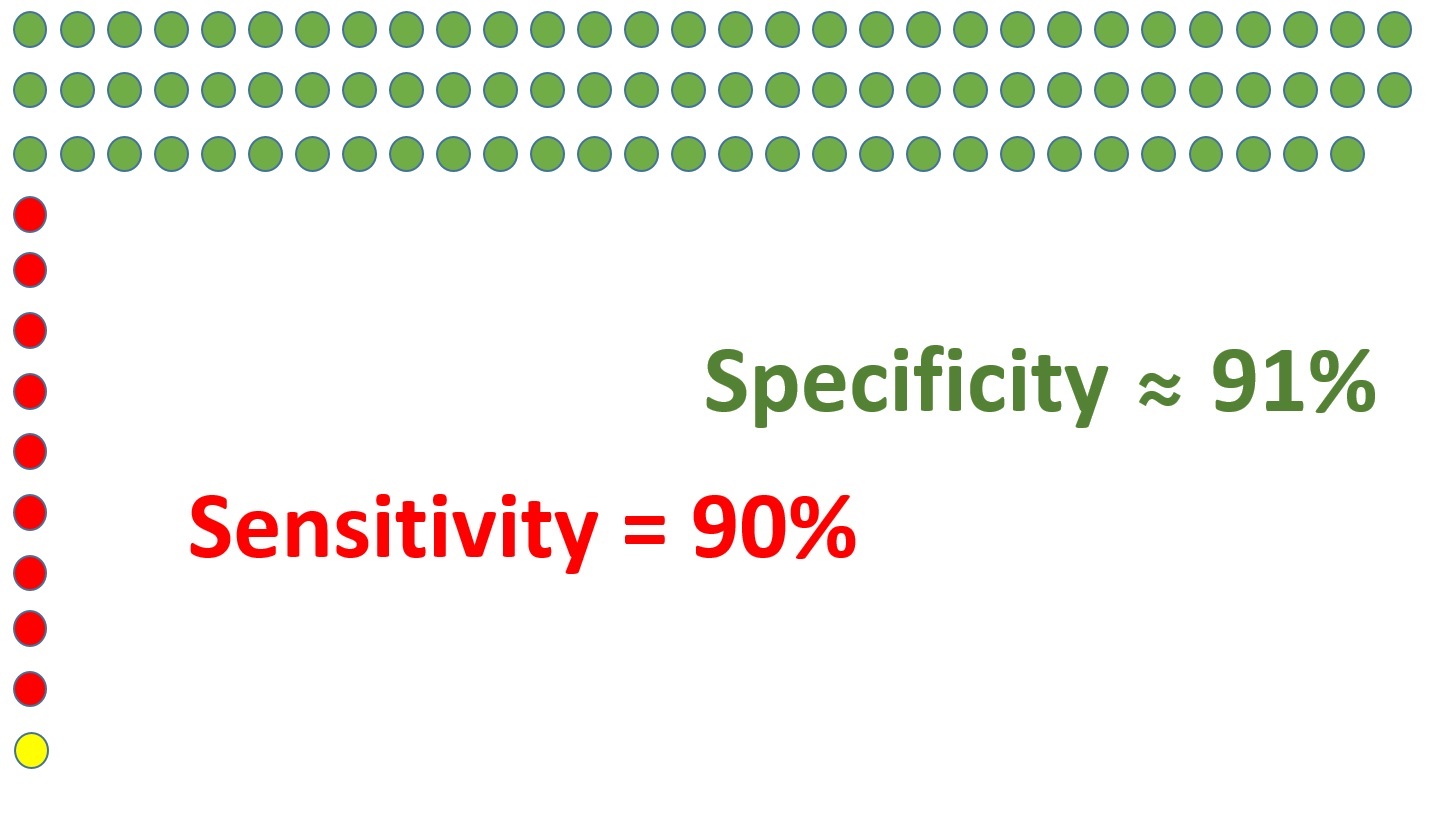Do doctors understand test results? What do medical test really tell us? Not much if you don't understand statistics and specifically Bayes Theorem. The following scenario was presented to hundreds of medical professionals in a series of statistical workshops.
1. Ten out of every 1,000 women have breast cancer ("1% Prior or Prevalence").
2. If a woman has breast cancer, the probability that she tests positive is 90% ("Sensitivity").
3. If a woman does not have breast cancer, the probability that she test negative is 91% ("Specificity")
"A 50-year-old woman, no symptoms, participates in routine mammography screening. She tests positive, is alarmed, and wants to know from you whether she has breast cancer for certain or what the chances are. Apart from the screening results, you know nothing else about this woman. How many women who test positive actually have breast cancer?"
The probability that the woman has cancer is 1/11 or approximately a 9% chance.

In a population of 1000 the Sensitivity rate of 90% translates to a "True Positive" of 9. A Specificity rate of 91% with this Sensitivity rate yields a "False Positive" of 89. Applying Bayes Theorem:

If you guessed 9/10 or 90% don't feel bad. In many of the seminars so did most of the doctors!
Adopted from: BBC World Service, "Do doctors understand test results?"

In World War II, Germany's Panzer Mark V tank was technologically more advanced than those of the allies. It was strategically important to know how many Panzers had been produced. A method for estimating population size from samples was developed.
Understanding the business operating environment is essential. Demographics are reshaping the world. How should we change to adapt to this new world?
How far has China progressed in the last 20 years? The statistics are incredible. Life Expectancy is an easily obtained measure of economic developmental progress. What does the future hold?
Data Analysis uses a set of tools that complement the more traditional data acquisition software.